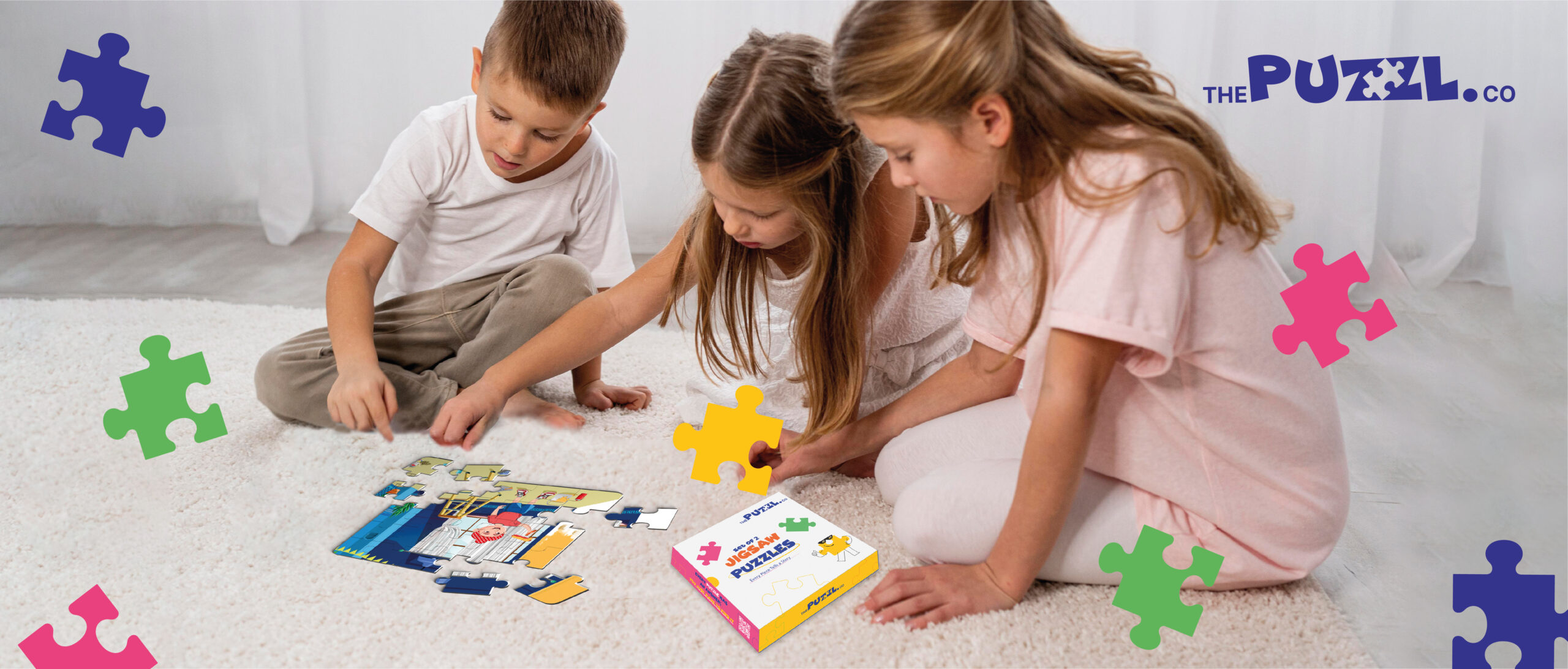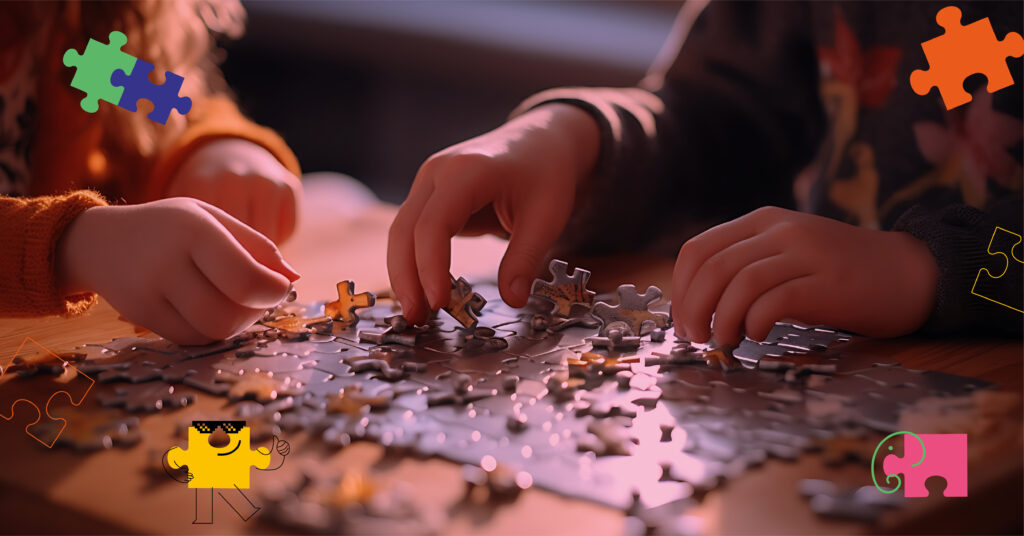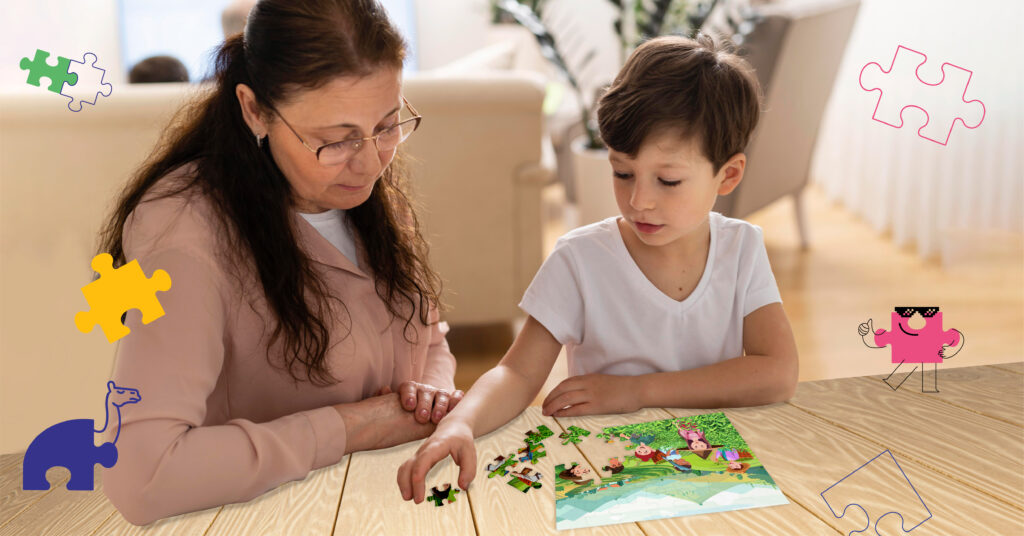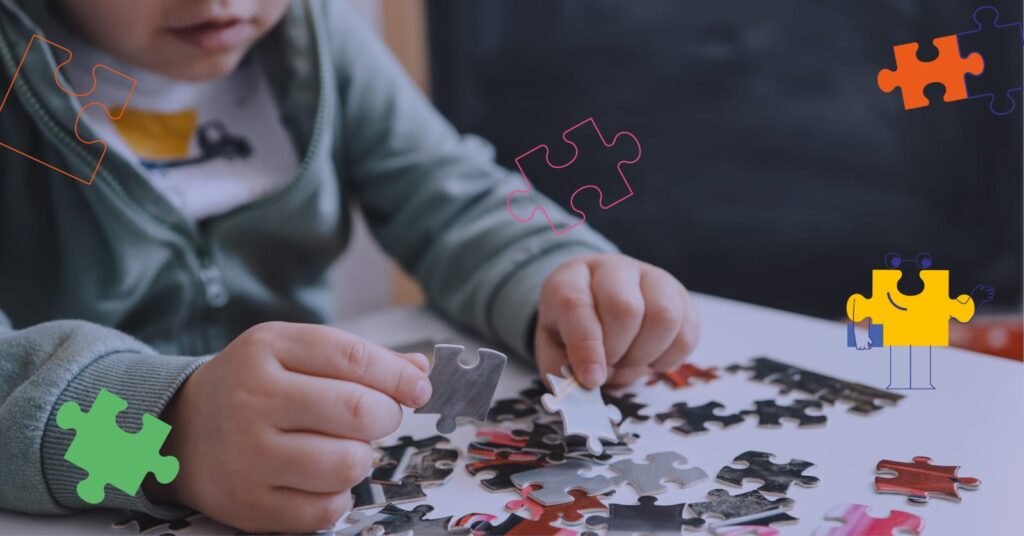In today’s digital age, where screens often dominate children’s playtime, traditional puzzles still hold a unique charm and educational value. Among these, jigsaw puzzles for kids and other puzzle games have proven to be not only engaging but also essential tools for cognitive and imaginative development. The benefits of these puzzles are multifaceted, impacting everything from problem-solving skills to creativity. Let’s delve into how jigsaw puzzles for kids spark imagination and foster growth in children.
Also Read – Educational Benefits of Jigsaw Puzzles
Developing Cognitive Skills
One of the primary benefits of puzzle games for kids is their ability to enhance cognitive skills. When children work on solving puzzles, they engage in a mental exercise that involves problem-solving, critical thinking, and logical reasoning. Each piece of a jigsaw puzzle for kids represents a small part of a larger picture, and fitting these pieces together requires understanding shapes, colors, and patterns. This process helps children develop spatial awareness and improves their ability to recognize relationships between different parts of an object.
For little children, simpler puzzles can teach basic concepts such as shapes, letters, and numbers. As they progress to more complex puzzles, they learn to approach problems methodically, testing hypotheses and learning from trial and error. This analytical process is foundational for many academic skills, including math and science.
Enhancing Memory and Concentration
Jigsaw puzzles for kids also play a significant role in enhancing memory and concentration. Remembering the shapes, colors, and details of each piece requires a child to utilize their short-term memory. Over time, as they repeatedly engage with puzzles, their memory retention improves. Additionally, the focus needed to complete a puzzle helps lengthen a child’s attention span. Unlike many fast-paced video games, puzzles require sustained concentration, teaching kids patience and perseverance.
Boosting Imagination and Creativity
Beyond cognitive development, puzzle games for kids are powerful tools for sparking imagination and creativity. Each puzzle presents a unique challenge, and finding solutions often requires thinking outside the box. For instance, with the best jigsaw puzzles, children must visualize the completed image and mentally experiment with different configurations. This imaginative exercise encourages them to think creatively about how pieces fit together.
Moreover, themed puzzles – such as those featuring characters, landscapes, or fantastical scenes – can transport children to different worlds. This narrative aspect of puzzle-solving fosters creativity and can inspire a love for storytelling and artistic expression.
Encouraging Collaboration and Social Skills
While puzzles are often seen as solitary activities, they can also be excellent tools for social development. Collaborative puzzle-solving encourages teamwork and communication. When children work together on a jigsaw puzzle for kids, they must share ideas, negotiate roles, and support each other through challenges. This collaborative effort not only builds social skills but also enhances the learning experience, as children can benefit from the diverse perspectives and problem-solving approaches of their peers.
Incorporating jigsaw puzzles for kids and other puzzle games into daily playtime is a powerful way to support cognitive, social, and creative development. These activities not only provide entertainment but also equip children with essential skills for their academic and personal growth.



